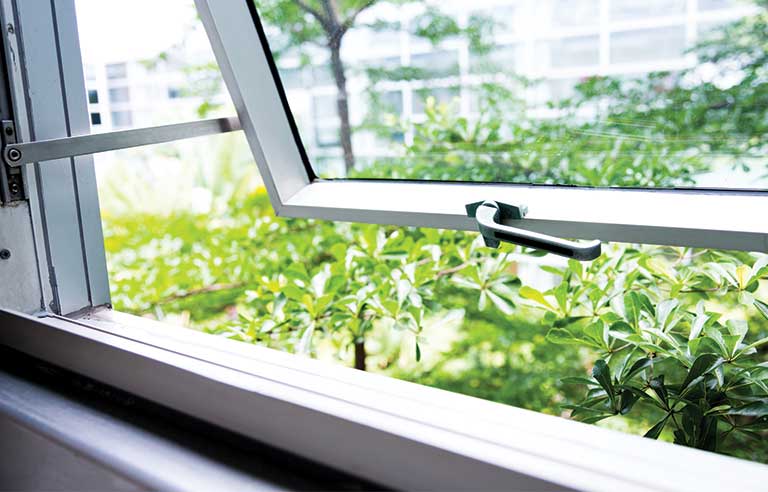
Davis, CA — Opening windows and blinds to improve airflow and increase natural light are some of the simple steps employers, building managers and workers can take to help reduce the spread of COVID-19 in offices and other workplaces, according to a recent research review.
Using previous studies on microbes and common pathogen exchange pathways in buildings with known information about SARS-CoV-2 – the coronavirus that causes COVID-19 – researchers at the University of California, Davis and the University Oregon looked for ways to reduce potential transmission.
By opening windows, the rate of air flow can dilute virus particles indoors, an April 10 UC Davis press release states. The downside is that high amounts of air flow also can push particles back into the air and cause more energy use.
Although more research is needed on the impact of sunlight on the virus, the researchers note that “daylight exists as a free, widely available resource to building occupants with little downside to its use and many documented positive human health benefits.”
Further, maintaining a high relative humidity indoors can help because virus particles “like drier air.” High humidity also increases the size of virus particles, “meaning they settle out more quickly and don’t travel as far.”
Increased handwashing and regular cleaning and disinfecting of surfaces – where viral particles can survive for a few hours to a few days – are important practices in all workplaces. Workers responsible for cleaning and disinfecting workspaces can find a sortable, searchable and printable list of Environmental Protection Agency-approved disinfectants for use against the virus.
The study was published online April 7 in the American Society for Microbiology’s journal mSystems.


